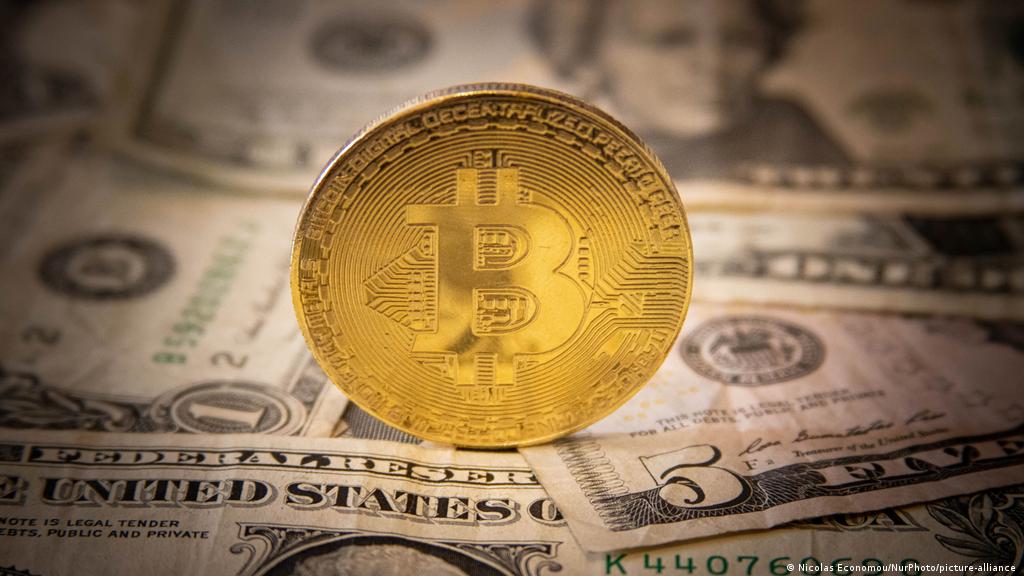Cryptocurrencies - An Assessment If It Should Be Permitted In India
Crypto technology and Web 3.0 are dominating the IT and finance communities. Cryptocurrencies could play a major part in the future of finance, according to their proponents.
Author:James PierceReviewer:Camilo WoodJul 29, 20221 Shares146 Views

Crypto technology and Web 3.0 are dominating the IT and finance communities.
Cryptocurrenciescould play a major part in the future of finance, according to their proponents.
There is open conjecture over whether finance and banking as we know them can survive the development of cryptocurrencies.
In this session, we will discuss cryptocurrencies and their financial system.
Introduction
Cryptocurrencies and other crypto goods (such as non-fungible tokens or NFTs) are lauded as inventions that will usher in decentralized finance or Defi, blockchain applications aimed to undermine the old financial system.
Blockchain, or the distributed ledger on which crypto-products run, aims to render financial intermediation and banks obsolete.
Cryptos may be more than a technology; they may also represent a philosophy.
A Financial Times video attributes Bitcoin's growth to "healthy dissent, base greed, lofty idealism, and simple FOMO".
The same FT video argues, "Cryptos represent anarchism's essential concept of cooperation without a central authority."
Crypto items bypass the traditional banking system and the government.
Some say cryptocurrencies can separate money and State, like Church and State.
It's called 'freedom' money.
Bitcoin is an insurance policy against an Orwellian future, according to Nassim Nicholas Taleb.
Regulatory, it may not be appropriate to approach cryptos as just another currency, asset, or commodity, but also as a social movement.
Cryptocurrency Basics
When using paper currency, the receiver only needs to check for counterfeits.
The recipient authenticates the payment instrument.
This arrangement works, except when the receiver fails to detect counterfeit coins.
In digital transactions, an intermediary like a bank authenticates the payment because practically all are bank transfers.
This approach works because the bank verifies the sender's account balance.
Some thought banks' intermediation was unnecessary.
They didn't trust banks, thought their fees were too high or didn't want their transactions traced.
Their approach was to construct a private currency and a transaction arrangement or network that circumvented banks or other financial or social institutions.
In the absence of a trust institution like a bank, how does the network verify that the same currency is not spent again and again?
The double spending problem.
Satoshi Nakamoto, a fictional individual or person or business or other organization, solved this problem first.
Bitcoin appeared.
He created the blockchain.
A blockchain broadcasts transactions to all network computers.
A block containing new transactions is validated by a consensus mechanism and added to the preceding blockchain.
Every block is linked to the previous block, making double spending difficult.
Ethereum, Cardano, Dogecoin, Tether, Stellar, etc. followed Bitcoin.
They're called cryptocurrencies.
Cryptography is used to produce or authenticate transactions, hence the prefix crypto-.
Cryptocurrencies are decentralized, participant-authenticated systems.
They sidestep the financial system's controls.
Governments can't track or seize them.
Transactions are validated, but not purposes or counterparties.
They operate online without a physical presence.
Bitcoin began in 2008, yet until 5 years ago, all cryptocurrencies had a $20 billion market worth (February 2017).
This reached $289 billion in February 2020 and $2.9 trillion in November 2021.
It's $1.98 trillion (Feb. 9, 2022).
Bitcoin accounts for 42% of market valuation, the top two for 61%, and the top five for 71%. 17,436 cryptocurrencies and 458.4 crypto exchanges.
A Critical Assessment Of Cryptocurrencies
With that quick, perhaps simplified introduction to cryptocurrencies,we will now examine their nature and ramifications, especially in the context of the present debate in India.
Start by knowing what cryptocurrency is, what role it plays economically, and what hazards it poses to society and the economy.
Define Cryptocurrency
Currency always has an issuer, generally a sovereign.
Even when gold is used as cash, sovereigns mint gold coins.
Second, a currency has always been a commodity or loan instrument.
Cryptocurrencies don't fit this definition of a currency because they have no issuer, aren't debt instruments or commodities, and have no inherent value.
Not everything that's trustworthy is a money.
Even if technology (such a blockchain) provides cryptocurrency confidence, they can only function as a currency within the cryptocurrency's private and exclusive ecosystem.
Some jurisdictions treat cryptocurrency as assets.
All financial assets have cash flows and must be someone's liabilities.
Cryptocurrencies are neither liabilities nor monetary flows.
They're not financial assets.
Also, bitcoins are being seen as commodities.
Cryptocurrencies are neither tangible nor useful.
Some try to compare them to gold, limiting their supply like natural resources or mining them.
Limiting supply by design is not the same as restricted supply in nature (like gold) since design can always be adjusted, and even if one cryptocurrency has a limited supply, that limitation does not work for all cryptocurrencies taken together.
To become money, gold must be stamped and issued by a sovereign.
What Are Cryptocurrencies If Not Money, Financial Assets, Or Physical Assets?
Advocates call them digital assets. Even that is questionable because cryptocurrencies have no underlying purpose, like car rental software, fundamental banking systems, or smartphones.
That leads to the conclusion that it is an electronic code (with no practical value) that has created enough buzz for individuals to pay money to buy ownership rights to it, apparently in the hope that someone else would buy it at a better price in the future. What began as a currency now has speculative appeal.
Bitcoin has generated outstanding returns as a store of value, but so did tulips in 17th-century Netherlands.
Cryptocurrencies are a speculative Ponzi scheme.
Socially, Charles Ponzi's 1920 plan may be better than cryptocurrencies.
Ponzi schemes buy income-generating assets.
A bitcoin is like a zero-coupon perpetual, which pays no interest and never returns the principal.
A bond with equal cash flows would be worth nothing, the same as a cryptocurrency.
If everything returns to its equilibrium value, bitcoin investors won't fare well.
What Useful Social Or Economic Role Does A Cryptocurrency Play?
If cryptocurrencies are to revolutionize finance, we must grasp their role.
An equity share allows a corporation to mobilize risk capital, a bond allows a company/Government to borrow money, a mutual fund allows ordinary investors to diversify their portfolio, and so on.
Every financial product has a function other than being an investment.
How Do Cryptocurrencies Work?
Many cryptocurrencies' volatility makes them inefficient as a medium of trade.
A priori, there's no reason to think people trust them as much as legal cash.
There's anecdotal evidence of businesses adopting bitcoins, but no verifiable statistics; its use as a money seems insignificant.
Do Cryptocurrencies Store Value?
Given the rise of various cryptocurrencies, some say they are.
This reasoning is flawed.
Consider any store of value: currencies, financial assets, or actual commodities with inherent value (works of art like paintings also have historical, aesthetic and scarcity value).
Bitcoin is none of these.
If enough people opt out, their values can easily drop to zero.
Despite the hype, cryptocurrencies don't appear to be created to meet any unmet financial need or to meet existing demands more effectively.
If there's any innovation, it's distributed ledger, which can thrive even if cryptocurrencies are prohibited globally.
What Risks Do Societies Or Economies Face?
Cryptocurrencies are designed to be private currencies and to circumvent government regulation of financial integrity requirements such as KYC, AML/CFT, etc.
Let's look closer at these two aspects.
Private Currencies Or Currency-like Items' Economic Impact
Private currencies were historically unstable, therefore they evolved into fiat currencies.
The step back to private currencies cannot be done merely because technology allows it (it always has), without considering the legal, social, and economic disruption it produces.
Every private currency will replace the Rupee.
The Rupee's usefulness as a currency will suffer.
With private currencies, the country would have alternative currency systems. Increasing cryptocurrency popularity would 'dollarize' our economy.
Dollarization would impair authorities' ability to control money supply or interest rates since monetary policy wouldn't affect non-Rupee currencies or payment instruments.
When that happens, India loses both its currency and economic policy power.
Without a monetary policy, inflation control would suffer.
People may prefer to hold at least a portion of their deposits in US Dollar or Euro.
Cryptocurrencies valued in convertible currencies could do so.
Private cross-border cryptocurrency flows are evident.
If this tendency is legitimized, trade payments, personal remittances, and cross-border investments will use cryptocurrency.
Non-reserve currencies could affect India's foreign currency reserves, which stabilize the external sector.
Such bitcoin payments can circumvent capital account requirements.
This would undermine the capital account regime's control over capital flows.
This affects foreign exchange reserve accumulation and exchange rate control, threatening macroeconomic stability.
Private currencies aren't merely bitcoin or cryptocurrencies.
Any private currency, digital or physical, crypto-based or not, is an issue.
Stablecoins are advocated globally because they are less volatile than bitcoin.
Stablecoins would be a better currency than volatile cryptocurrencies.
Global Integrity Standards
Cryptocurrencies bypass established intermediation and control arrangements that safeguard financial transaction integrity, such as Know-Your-Customer, AML, and CFT laws.
Cryptocurrencies are attractive to illegal/illegitimate transactions that have been filtered out of the conventional financial system because they are anonymous, decentralized, and function virtually.
Estimated cryptocurrency crimes in 2021: $14 billion (Wall Street Journal, January 06, 2022).
The amount is small, but the ramifications for the AML/CFT framework created over two decades are substantial.
Adding cryptocurrency to the financial system has other negative effects.
Since valuation is based on perceptions, not fundamental value, it will destabilize a country's monetary stability by large-scale wealth loss to investors (if accepted broadly), even if it's not allowed to be used as a currency.
Crypto infrastructure's excessive energy use has been debated. 900 new bitcoins require $45m in daily power). In 2019, bitcoins used as much electricity as Switzerland.
Should Cryptocurrencies Be Permitted And Regulated In India?
Arguments for regulating cryptocurrency include:
- Indians may have a global advantage in blockchain or DLT. Banning cryptocurrencies would hurt India's DLT adoption.
- Most major countries are considering regulating cryptocurrencies, not banning them.
- Many Indians have invested in cryptocurrencies, thus banning them could cost them money.
- Bans are unlikely to work because cryptocurrencies are anonymous by nature.
Cryptocurrencies are usually blockchain-based.
Bitcoin and ether are native coins of their respective blockchains.
They can be used to settle transactions or to reward blockchain work, like mining.
These two services aren't necessary for a blockchain's basic operation.
Centrally authenticated transactions should allow a blockchain without native cryptocurrency.
Creating native coins is one use case of blockchain technology.
Banning cryptocurrencies would impede the adoption of blockchain technology, like stating human cloning will kill biotechnology advancements or nuclear weapons would hurt nuclear physics.
Advanced economies (AEs) don't restrict cryptocurrencies, so why should we?
While copying AE techniques is sometimes an acceptable way to reform, India is not similarly placed as AEs with cryptocurrencies.
Private currencies could be utilized for worldwide strategic control.
Other Reasons Why AEs Shouldn't Ban Them Are Listed Below
- Most cryptocurrencies are valued in dollars (or potentially any of the freely convertible currencies). Wider adoption would increase currency use. So cryptocurrencies don't threaten convertible currencies like the Rupee, which isn't an international currency. Following AEs' lead on cryptocurrencies would be against the national currency's interests.
- Better adoption of cryptocurrency would boost AE firms' growth and employment. Cryptocurrencies could provide AEs better strategic control over emerging market (EM) currencies.
- AEs' mature markets can endure cryptocurrency upheaval. They can wait and see.
- AEs have faster legal systems, so worries about crypto abuse can be addressed. In India, no big consumer exploitation cases have been legally redressed (e.g., the mis-selling of derivatives in mid 2000s).
- AEs control crypto firms politically. The recent recovery of bitcoins from oil pipeline hackers in the US shows that AE governments may access cryptocurrency records despite assurances of non-traceability. Most countries, including India, lack such advantages.
Cryptocurrencies Have Concentrated Ownership
According to a January 2021 report in The Telegraph11, 13% of Bitcoin is held by 100 people.
Such concentrated ownership, usually by innovators or initial investors, would make the alternative monetary system manipulable.
Arguing that cryptocurrencies shouldn't be prohibited because a ban wouldn't work is shallow.
Some believe that private currencies as a'medium of exchange' raises real difficulties.
They should be authorized as an investment asset but not as legal tender.
This argument seems more hopeful than persuasive.
Even though they're not allowed as cash, they're still a store of value.
The value of crypto assets rests primarily on the idea that people would value and use them, unlike the Rupee, which is anchored by monetary policy and legal tender status.
Since valuation is mostly based on unfounded beliefs, it will destabilize a country's monetary and fiscal stability, even if it's not legal tender.
Regulating cryptocurrencies is foolish for other reasons.
Cryptocurrencies aren't currencies, actual assets, financial assets, or digital assets.
No financial regulator can regulate it.
Undefined things can't be regulated.
People Also Ask
Is Cryptocurrency A Good Investment?
Cryptocurrency may be a good investment if you are willing to accept that it is a high-risk gamble that could pay off, but there is also a good chance you could lose all of your money.
In 2022, there has been a worldwide crypto price crash, which has caused the prices of cryptocurrencies like bitcoin to fall.
Who Owns The Most Bitcoin?
Most people agree that Satoshi Nakamoto, the person who created Bitcoin, has the most of it.
Nakamoto is thought to have around 1.1 million BTC that they have never touched.
This has led to many theories about who they are and what's going on with them.
Which Crypto Will Explode?
Ethereum is at the top of the list of the next cryptocurrencies to take off in 2022 because its blockchain technology is stable and its future looks bright.
Ethereum is the biggest platform for smart contracts right now.
Conclusion
Crypto-technology is based on evading government control.
Cryptocurrencies bypass the regulated financial system.
We've seen that cryptocurrencies can't be defined as a currency, asset, or commodity; they have no underlying cash flows or intrinsic value; they're like Ponzi schemes, or worse.
If allowed, they can damage the currency system, monetary authority, banking system, and the government's ability to oversee the economy.
They jeopardize a country's financial sovereignty and make it vulnerable to strategic manipulation by private corporations or governments.
These factors suggest that India should ban cryptocurrencies.
None of the justifications for regulating cryptocurrencies pass basic inspection.

James Pierce
Author

Camilo Wood
Reviewer
Latest Articles
Popular Articles




